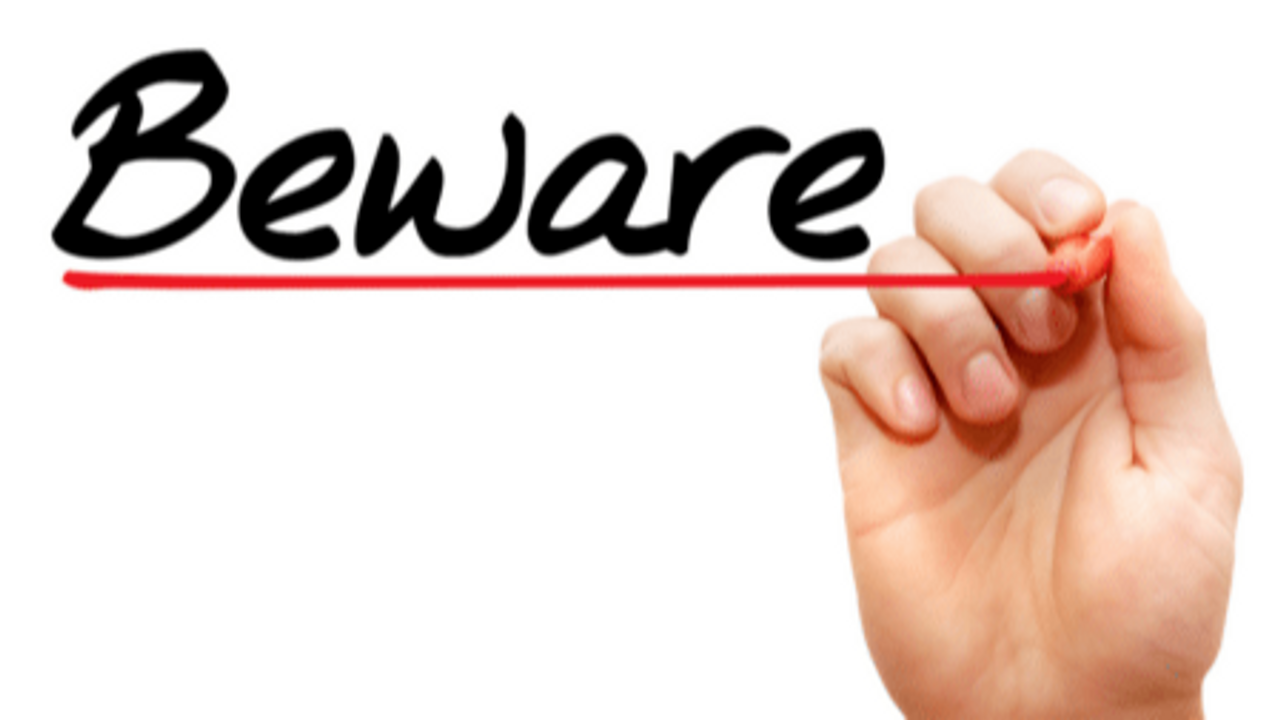Nurse-Writers: Avoid this Unethical Scheme or Lose Your Credibility

The LinkedIn message exchange started innocently enough.
A man named Evan Smith reached out to say:
“My company is currently looking to partner with some brand coaches. Would you be open to a brief discussion? (I’m not trying to sell you anything)”
Umm…OK.
Companies often reach out to me on LinkedIn with somewhat cryptic messages. They don’t want to divulge any proprietary information until they’ve gauged my interest in working with them.
So, Mr. Smith’s message didn’t strike me as particularly odd, except that whenever someone says they’re looking to “partner” I feel my Spidey sense begin tingling. “Partnering” often means “sharing revenue” or, worse, “using your expertise in exchange for worthless ‘exposure.”
Nonetheless, I wrote back.
“I'm absolutely crushed by deadlines and meetings for the next week (due to returning from an all-too-brief vacation), but might be willing to get on a call next week - if you can tell me more about what you mean by ‘partner with some brand coaches’.”
What happened next confirmed my initial suspicions about this interaction.
Mr. Smith replied:

In case it doesn’t register with you, here’s the salient text:
“…getting people featured on media outlets…”
I see.
What is Wrong with This Scenario?
If you know anything at all about the public relations industry, you may be asking yourself what is wrong with that highlighted text. After all, don’t PR agencies exist to do this very thing: get their clients featured in news stories?
Yes, they do.
But that’s not what this company, Visual Six, appears to be doing.
No, they appear to be engaging in what’s known in the industry as “pay-to-play.” You can tell this by looking closely at the information on their website – which is exactly what I did, as soon as I suspected this could be what I was being solicited for by Mr. Smith.
The Visual Six “Publications” page outlines the following process:
- The Visual Six client (a business owner, for example) pays for “guaranteed placement” on one or more high-profile websites
- The client is interviewed by a Visual Six internal editor
- The internal editor writes a story about the client, complete with backlinks to the client’s site
- Visual Six sends the story “out to be published”
It’s that last step that troubled me. To whom does Visual Six send the story? I couldn’t imagine, because ABC, NBC, Yahoo! Finance, and other journalistic outlets use staff and freelance journalists to write the articles that appear there. Those types of outlets generally don’t “guarantee placement” to any PR agency or business owner, nor do they allow any type of paid article placements, except under a “sponsored content” banner that usually costs a fair chunk of change – and often involves contracting directly with the publication to produce the content.
In a nutshell: No news outlets that I’m aware of buy pre-fab articles from third-party vendors.
Which takes us back to my question about “to whom does Visual Six send the story?”
Again, let me quote Mr. Smith’s own words:
“We were wanting to see if you would be interested in adding our main service to your list of services (If you find it appealing). We would throw you a 20% referral fee and you wouldn't have to do any of the work.”
Ah. I see.
Mr. Smith was very cagey here, in my opinion. He did not come right out and say, “We will feed you pre-written stories, which you can then submit to your editors at high-profile news sites as your own work, and not only will you get paid by the publication, but we’ll also pay you an additional 20%.”
But that’s how I interpreted it.
Pay-for-Play is Wholly Unethical
In case you are very new to freelance journalism or content writing, please burn this next statement into your soul:
Never, EVER accept money or another consideration to interview or feature a particular source in an article you’re writing.
Reputable public relations agencies would never dream of doing this. They understand all to well the ethical line journalists walk. A PR agency will gladly connect you with relevant and appropriate sources at your request (which you can interview or not, as you please), and they will send you media releases to promote their clients and their clients’ news, in hopes you’ll find some of this news intriguing enough generate an article angle worth pitching to an editor. That’s all perfectly above-board.
But a reputable PR agency will never bribe you.
As a journalist, accepting even a small gift, receiving a free product to review (that you keep afterwards), accepting reimbursement from a source for travel expenses, or receiving any other compensation from an entity other than your publisher is questionable, ethically speaking. Taking any sort of compensation in exchange for writing about a person, product, or even topic could be seen as compromising your journalistic integrity.
But being paid to include a particular source in your article is only one form of pay-to-play. Other unethical players may ask you to do things like…accept pre-written articles to pass off as your own work, while you receive payment for doing so.
How to Know if You’re Engaging in Pay-to-Play
This concept of pay-to-play can be confusing for nurses new to the freelance writing game, so let me give you a foolproof guideline to set off alarm bells in your mind, should it occur.
If you’re being paid by a publication or website to write something and ALSO are receiving compensation from some other source related to your story, then you probably are engaging in pay-to-play.
Engaging in this type of behavior – even unwittingly – not only brings shame upon our entire profession, but you could be ostracized by the wider editorial community if you’re caught. No legitimate publication will work with a writer known to include paid sources in their articles. Just don’t do it.
And if you’re approached, as I was, and feel uncertain about the situation, my suggestion is to back away. In my case (because I’m very experienced at this and don’t care about offending people like Mr. Smith), I wrote back to say:
“I’m very concerned that what you’re asking here is pay-to-play. Are you partnering with writers who then feature your clients in articles they’re writing for the outlets you list? And you then kick back a ‘referral fee’ to those writers?”
Not surprisingly, Mr. Smith did not respond to this message, so I followed up twice more:
“Can you please clarify how this works?”
And, finally:
“Your silence speaks volumes. Clearly you understand that what you’re doing is wholly unethical. You can be sure I will put the word out not only among my writer friends but to the very wide editor community I’m connected with - so that they can be alert to any writers slipping paid sources into their stories. Shame on you.”






